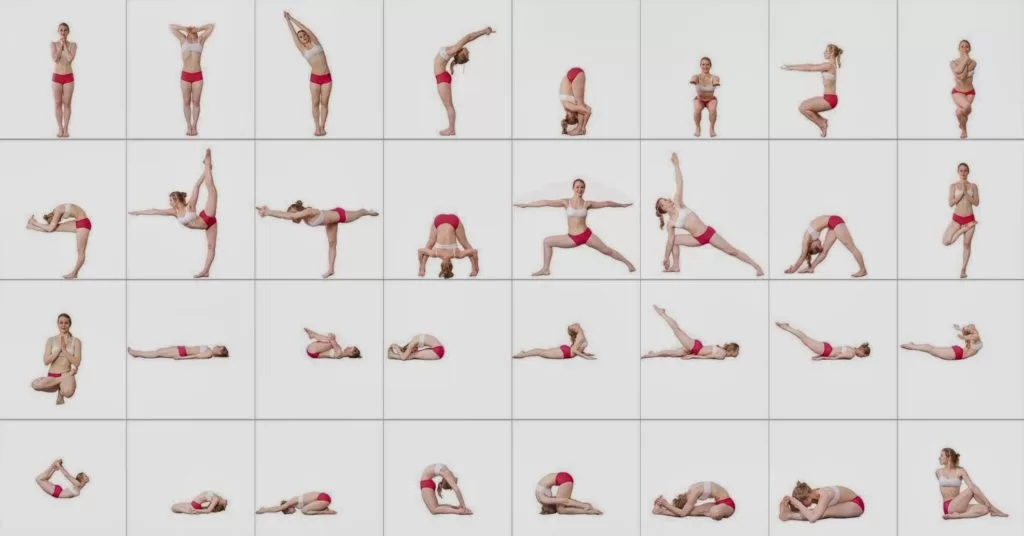
Do You Have To Close Your Eyes To Meditate?
Meditation has been practiced for centuries by people of all cultures and religions. It is a technique that involves focusing the mind on a particular object, thought, or activity to achieve a state of relaxation and inner peace. However, there is a common misconception that to meditate, one must close their eyes.
Many people believe that closing the eyes is a crucial aspect of meditation as it helps to block out external distractions and allows the mind to focus inward. However, some people find it challenging to close their eyes during meditation, whether it be due to discomfort or a fear of losing their awareness of their surroundings. In this article, we will explore whether or not closing your eyes is a necessary component of meditation and the potential benefits and drawbacks of doing so.
No, you don’t have to close your eyes to meditate. It’s a common misconception that closing your eyes is necessary for meditation. However, many people find it helpful to reduce external distractions and focus on their internal experience. Some people prefer to keep their eyes open and maintain a soft gaze while meditating. Ultimately, the decision to close your eyes or not is a personal preference.
Do You Have to Close Your Eyes to Meditate?
Meditation is a powerful tool that helps us to connect with our inner self, reduce stress, and improve our overall well-being. But have you ever wondered if you have to close your eyes to meditate? Many people believe that closing your eyes is an essential part of the meditation process, but is it really necessary? Let’s find out.
Benefits of Closing Your Eyes During Meditation
Closing your eyes during meditation can help you to focus and concentrate better. When you close your eyes, you eliminate all the distractions around you, and you can turn your attention inward. This helps you to become more aware of your thoughts, feelings, and bodily sensations.
Moreover, closing your eyes can help you to reduce stress and anxiety. When you meditate with your eyes open, you may get distracted by visual stimuli, such as people walking by or objects in your surroundings. This can trigger your fight or flight response, which can increase your stress levels. By closing your eyes, you can block out these distractions and create a more peaceful and calming environment for yourself.
When Should You Keep Your Eyes Open During Meditation?
While closing your eyes can be helpful for most people during meditation, there are some instances when you might want to keep your eyes open. For example, if you are feeling sleepy or drowsy, keeping your eyes open can help you to stay alert and focused. Additionally, some meditation techniques, such as mindfulness meditation, encourage you to keep your eyes open and focus on a specific object, such as a candle flame or a piece of artwork.
The Verdict: Do You Have to Close Your Eyes to Meditate?
So, do you have to close your eyes to meditate? The answer is no. While closing your eyes can be helpful for most people, it is not a requirement. What’s more important is that you find a comfortable and peaceful environment and a meditation technique that works for you. Whether you choose to meditate with your eyes open or closed, the key is to be present in the moment and let go of any distractions or thoughts that come to mind.
Benefits of Meditation
Meditation has numerous benefits for our physical, mental, and emotional well-being. Here are just a few of the many benefits you can experience from regular meditation practice:
- Reduced stress and anxiety
- Better sleep quality
- Increased focus and concentration
- Improved immune function
- Lower blood pressure
- Increased self-awareness
- Enhanced creativity and productivity
Meditation vs. Relaxation
Many people confuse meditation with relaxation, but they are not the same thing. Relaxation is a passive state where you let go of tension and stress, while meditation is an active state where you focus your attention and awareness. While relaxation can be helpful for reducing stress and promoting sleep, meditation has a wider range of benefits and can help you to develop mindfulness, compassion, and self-awareness.
Final Thoughts
In conclusion, closing your eyes during meditation can be helpful for many people, but it is not a requirement. What’s more important is that you find a meditation technique that works for you and that you practice regularly. Whether you choose to meditate with your eyes open or closed, the key is to be present in the moment and let go of any distractions or thoughts that come to mind. With regular practice, you can experience the many benefits of meditation and improve your overall well-being.
Frequently Asked Questions
Here are some common questions and answers about meditating with your eyes open or closed.
Do you have to close your eyes to meditate?
While closing your eyes is often recommended for meditation, it is not necessarily required. The goal of meditation is to focus your mind and be present in the moment, so if you can achieve that with your eyes open, that is perfectly fine. However, closing your eyes can help minimize external distractions and allow you to turn your focus inward.
Additionally, some meditation practices, such as visualization or body scanning, may require you to close your eyes to fully engage in the practice. Ultimately, the decision of whether to meditate with your eyes open or closed is up to you and what works best for your personal practice.
Can you meditate with your eyes open?
Yes, you can absolutely meditate with your eyes open. In fact, many forms of meditation encourage keeping your eyes open, such as Zen meditation or mindfulness meditation. Keeping your eyes open can help you stay present and aware of your surroundings, and can also help you carry that sense of mindfulness into your daily life.
That being said, it is important to find a focal point to prevent your eyes from wandering and getting distracted. Some people find it helpful to focus on a specific object, while others prefer to keep their gaze soft and unfocused. Experiment with different approaches and find what works best for you.
Why do people close their eyes when meditating?
Closing your eyes when meditating can help minimize external distractions and allow you to turn your focus inward. When your eyes are closed, you are less likely to be distracted by visual stimuli such as people or objects in your surroundings, and can instead focus on your breath or other internal sensations.
Closing your eyes can also help you relax and let go of tension in your facial muscles. When your eyes are open, you may inadvertently strain your eyes or facial muscles, which can detract from your meditation practice. By closing your eyes, you can release that tension and fully immerse yourself in your practice.
Is it easier to meditate with your eyes open or closed?
Whether it is easier to meditate with your eyes open or closed can vary from person to person. Some people find it easier to stay present and focused with their eyes closed, while others find it easier to maintain a sense of mindfulness with their eyes open.
The best way to determine what works best for you is to experiment with both approaches. Try meditating with your eyes closed for a few sessions, and then try meditating with your eyes open for a few sessions. Pay attention to how each approach feels and how it impacts your practice, and then make a decision based on what works best for you.
What are the benefits of meditating with your eyes closed?
There are several benefits to meditating with your eyes closed. As mentioned earlier, closing your eyes can help minimize external distractions and allow you to turn your focus inward. This can help you achieve a deeper state of relaxation and concentration.
Closing your eyes can also help you visualize and focus on specific internal sensations, such as your breath or the sensations in your body. This can help you cultivate a greater sense of self-awareness and mindfulness. Additionally, closing your eyes can help you let go of tension in your facial muscles and promote a sense of calm and relaxation.
Meditation: Eyes Open vs Closed
Meditation is a powerful tool that can help you achieve inner peace and relieve stress. But one question that often comes up is whether or not you have to close your eyes when meditating. The answer is that it depends on the type of meditation you are doing and what works best for you.
Some meditation practices, such as guided meditation, involve closing your eyes to help you focus on the words of the guide. Other practices, such as mindfulness meditation, may involve keeping your eyes open and focusing on a specific object, such as a candle or a flower. Ultimately, the choice of whether or not to close your eyes when meditating is up to you. What matters most is finding a method that allows you to relax and connect with your inner self. So, whether you prefer to meditate with your eyes open or closed, the most important thing is to make time for this valuable practice in your daily routine.

